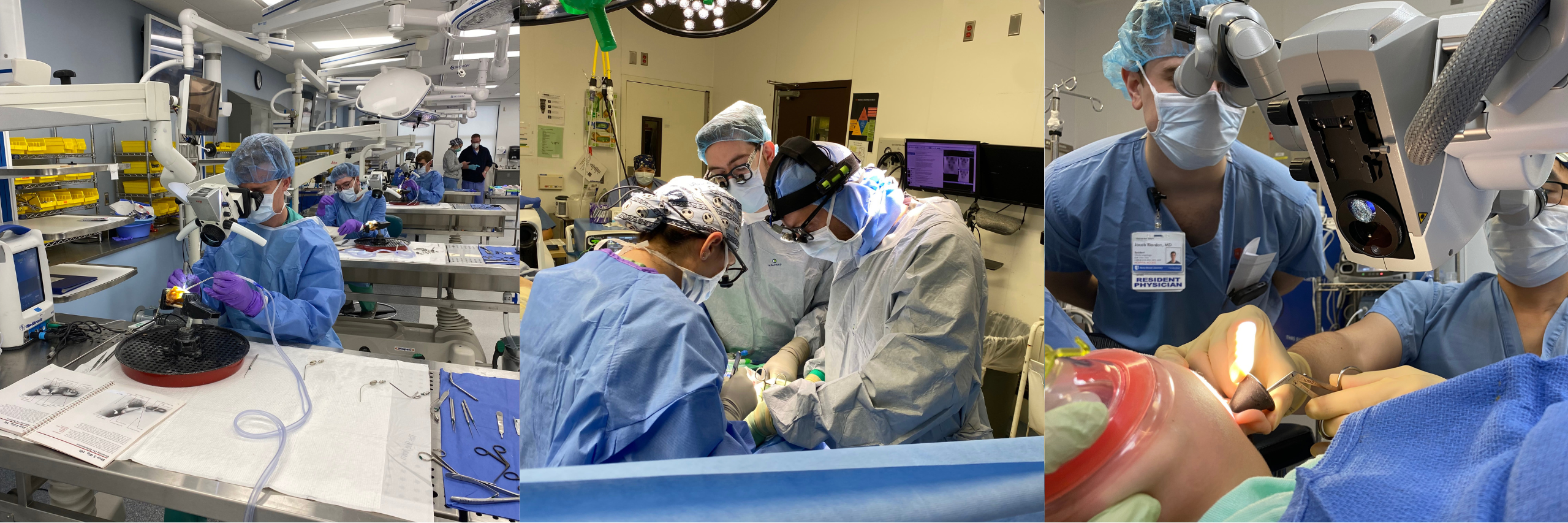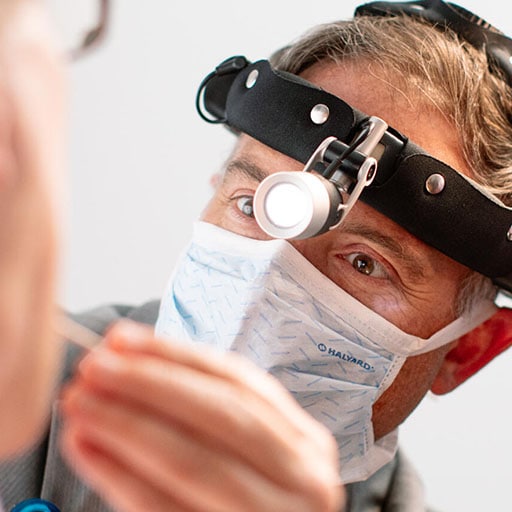How Seeing a Specialist with an Otolaryngologist Could Enhance Your Health
How Seeing a Specialist with an Otolaryngologist Could Enhance Your Health
Blog Article
Discovering the Area of Otolaryngology: What to Expect When You Consult an ENT
Otolaryngology, frequently referred to as ENT, includes the diagnosis and treatment of nose, ear, and throat conditions. For those experiencing related concerns, speaking with an ENT specialist can give clarity and alleviation. Recognizing what to anticipate throughout such consultations is important for efficient interaction and care. This review will describe key facets of the ENT experience, consisting of typical reasons for visits and the procedures associated with diagnosis and therapy.

Understanding Otolaryngology: An Introduction
Otolaryngology, typically referred to as ENT (Nose, ear, and throat) medication, is a specialized branch of medicine that concentrates on the diagnosis and therapy of problems influencing these essential areas of the body. This area incorporates a wide variety of problems, including those pertaining to hearing, balance, respiratory system function, and speech. Otolaryngologists are trained to manage both medical and surgical therapies, using sophisticated techniques and modern technologies. Their know-how extends beyond conventional disorders, addressing concerns such as allergic reactions, sinus infections, and hearing loss. In addition, they play a critical function in the management of head and neck cancers cells, providing complete treatment customized to private patient demands. Generally, otolaryngology remains essential for keeping health and lifestyle in afflicted people.
Typical Reasons to See an ENT Professional
Several individuals seek the experience of an ENT professional for a selection of reasons, reflecting the varied nature of conditions that affect the ear, throat, and nose. Typical issues include persistent sinusitis, which usually causes relentless nasal congestion and face pain. Allergies and their connected signs, such as sneezing and itching, additionally trigger sees to these experts (ENT Doctor). Hearing loss, whether steady or sudden, is an additional significant factor for examination. Additionally, individuals might seek examination for throat problems, consisting of relentless hoarseness or ingesting problems. Sleep apnea, defined by disrupted breathing during sleep, is often resolved by ENT professionals as well. Each of these problems highlights the value of specialized care in handling complex ENT-related health and wellness problems
Getting ready for Your ENT Visit
When planning for an ENT visit, it is necessary to gather relevant details and think about any details worries. Patients must assemble a comprehensive case history, including previous ear, nose, or throat problems, surgical treatments, and existing drugs. Documenting symptoms-- such as period, frequency, and extent-- can give valuable understandings for the ENT specialist. Furthermore, people need to prepare a checklist of questions they wish to ask, making sure that all issues are resolved throughout the see. Bringing along any kind of pertinent medical records or test results can better assist the ENT in recognizing the patient's problem. Patients must verify their appointment details, including date, area, and time, to decrease any last-minute complication. Proper prep work can boost the effectiveness of the examination and bring about better results.
What to Anticipate During the Consultation
As the examination begins, the individual can anticipate to participate in a thorough discussion with the ENT professional concerning their signs and clinical background. The professional will inquire concerning the duration, regularity, and intensity of symptoms such as hearing loss, nasal congestion, or aching throat. In addition, the patient's previous medical problems, medications, and any kind of pertinent family members history will be reviewed, assisting the professional in developing a total understanding of the person's health and wellness. The ENT may additionally inquire about way of life elements, such as direct exposure to allergens or toxic irritants. This open discussion develops a structure for the examination, making certain that the person's problems are resolved and setting the phase for any type of required examinations or recommendations for therapy.
Diagnostic Tests and Treatments in Otolaryngology
A variety of analysis examinations and procedures are vital in otolaryngology to accurately evaluate and detect conditions influencing the ear, throat, and nose. Typical tests consist of audiometry, which measures hearing feature, and tympanometry, examining center ear stress. Nasal endoscopy permits visualization of the nasal flows and sinuses, while laryngoscopy checks out the throat and singing cords. Imaging strategies, such as CT scans and MRIs, supply detailed sights of head and neck frameworks. Allergy testing may also be conducted to determine triggers for sinus or respiratory system concerns. These analysis devices enable ENT experts to establish a detailed understanding of individuals' problems, guaranteeing customized and effective management plans. Proper medical diagnosis is necessary for successful treatment outcomes in otolaryngology.
Treatment Alternatives Supplied by ENT Specialists
ENT experts use a variety of therapy alternatives tailored to deal with specific problems affecting the ear, throat, and nose. These therapies vary from traditional strategies, such as medication and way of life adjustments, to more intrusive procedures. For example, allergic reactions might be taken care of with antihistamines or immunotherapy, while chronic sinus problems may require nasal corticosteroids or sinus surgical treatment. For hearing loss, ENT specialists frequently advise hearing help or surgical interventions like cochlear implants. In cases of throat conditions, alternatives can include speech therapy or procedures to remove obstructions. Additionally, they might offer assistance for taking care of rest apnea, including making use of CPAP gadgets or medical interventions. Overall, the objective is to boost patients' lifestyle through customized care and reliable therapy approaches.
When to Seek Follow-Up Treatment With an ENT
Identifying when to seek follow-up treatment with an ENT professional is important for handling recurring symptoms or complications connected to ear, throat, and nose problems. Individuals need to think about scheduling a follow-up visit if signs and symptoms continue regardless of preliminary treatment, such as chronic ear pain, nasal congestion, or throat discomfort. Changes in hearing, balance issues, or unusual nasal discharge might likewise necessitate more examination. Furthermore, if a client experiences side effects from recommended medications or has actually undergone a procedure, follow-up treatment is very important to check recovery and address any kind of problems. Prompt consultations can assure efficient management of problems, avoid possible problems, and offer satisfaction pertaining to one's health. Looking for follow-up treatment advertises aggressive wellness administration in otolaryngology.
Frequently Asked Questions

What Certifications Should I Look for in an ENT Specialist?
When looking for an ENT specialist, one need to look for board certification, relevant experience, and solid person reviews. Furthermore, effective communication skills and a caring approach can considerably boost the general treatment experience.
How Do I Select the Right ENT for My Demands?
Picking the appropriate ENT professional involves reviewing their credentials, experience, and client evaluations (Otolaryngologist). It is essential to contemplate their communication style and approach to treatment, guaranteeing they align with the individual's details health needs and choices
Are There Any Threats Related To ENT Procedures?
The dangers associated with ENT procedures might consist of infection, bleeding, anesthesia difficulties, and potential damages to surrounding structures. Individuals must go over these dangers with their physician to understand individual worries and warranty notified decisions.
How Can I Manage Stress And Anxiety Before My ENT Appointment?
To take care of stress and anxiety before an appointment, individuals can practice deep breathing exercises, picture positive outcomes, prepare questions in breakthrough, and look for support from close friends or household, promoting a sense of peace of mind and calmness.
What Should I Do if I Experience Side Results From Therapy?
If side effects from treatment take place, the individual must immediately report them to their doctor. Adjustments to treatment or added treatments may be necessary to guarantee safety and effectiveness in managing their problem - Otolaryngology. As the appointment begins, the individual can expect to involve in a complete conversation with the ENT expert concerning their signs and clinical history. These analysis tools make it possible for ENT specialists to develop an extensive understanding of clients' conditions, making certain customized and efficient management strategies. ENT specialists provide a selection of treatment options tailored to resolve specific problems impacting here the throat, nose, and ear. When looking for an ENT specialist, one ought to look for board accreditation, relevant experience, and solid client reviews. Picking the best ENT expert involves assessing their qualifications, experience, and individual evaluations
Report this page